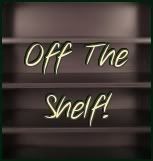I was able to get an ARC of this from Tori at
Book Faery. She is pro. :) Thank you!
Story:
Harold White is the newest and youngest member of the Baker Street Irregulars, the international, super-prestigious circle of Sherlockian scholars. At the same time that he is joining, the Irregulars are incredibly excited because one of their foremost scholars, Alex Cale, claims to have found the long-lost journal of Sir Arthur Conan Doyle, author of the Sherlock Holmes stories. But then there's a murder! Did Cale really find the journal??? WHAT IS HAPPENING? IT'S LIKE A MYSTERY OR SOMETHING!
Meanwhile, back in 1900, London, Arthur Conan Doyle is sick of Holmes and is feeling violent rages towards his own fictional character (being in the middle of Nanowrimo myself, I can sympathize). Then....A BOMB! Someone is trying to kill him! There's a murder! IT'S LIKE A MYSTERY OR SOMETHING. He enlists Bram Stoker to help solve it, as one does when one is the ACD and he needs someone to help him navigate the sketchy parts of town. Oh, babies.
Review of sorts:
This is the only ARC I have ever read, so I don't know if the profusion of typos and occasionally clumsy writing is typical of them. I'm assuming the typos will be fixed. Sometimes the clumsy writing would jar me a bit and annoyed me, but overall Moore is a pretty good writer. I originally felt his two main characters were VERY similar, but as you keep reading the books you realize how different they are. It's just not obvious from the start.
I didn't connect much with either Harold or Arthur. They both grow a lot as characters, but at the end of the day, Harold is socially-awkward and naive, and Arthur is a naive mysognist (and, according to this interpretation, severely repressed). I was interested in them, because they are so different and hard to understand to me, but still...not really any connection.
However, I LOVED their sidekicks. Sarah was just the go-getter type that Harold needs around to, well, slash people's tires when needed, and Bram....OH BRAM ILY. He was just hilarious and intuitive and deliciously sketchy.
Moore also did a great job with the settings, although he definitely seemed to know 1900-London better than modern-day London. But still, it really felt like you were there with the characters, experiencing Teh City.
The mystery itself was pretty well done. I don't read a whole lot of mysteries (mostly Doyle and Christie) so I don't know if it would satisfy a hard core fan. But I was interested, engaged, and finally on the edge of my seat (to use a common phrase) for the last hundred pages. There was at least one scene that was definitely chilling. I also liked how Harold thought through the various intellectual problems: by copying Holmes exactly. In real life, I don't know if this would work out, but it was fun to see Harold think, "At this point, Holmes would think this, and then he would undercut this assumption to reach the conclusion that....what?" and eventually figure it out. Ah, what a cute nerd.
In spite of the occasional cuteness, banter, and "daw" moments, there is a pervasive feeling of nostalgia throughout this book that I found really interesting and, well, sad. I was expecting a bit of a lighter read, maybe not correctly. But Harold is melancholy because his whole world of quiet academia is being shattered, and then his new world of crime-solving is at risk, and meanwhile Arthur's world is being replaced by electricity, people like Oscar Wilde are having bummer times in exile, and no one believes in LOVE anymore. Ah, I kid, but the sadness does get into you after 300+ pages of this book. I liked it. I liked the sadness. It was like Moore was trying to get into these characters' skin, and their skin was a sad place to be, even if their lives weren't 100% sad, so he had to communicate it.
The Sherlockian will be in stores on December 1st, 2010. Or so I am told.
Non-spoilery quotes:
Arthur: "It's no business of mine. But, Bram, I think this gin was the best idea either of us has had in months, and I will require some more of it before I retire. Come! To the nearest public house! We'll drink ourselves to sin and stumble home when we start seeing double."
Harold: 'He'd read thousands of happy endings and thousands of sad ones, and he had found himself satisfied with both. What he had not read, he now realized, were the moments after the endings. If Harold believed in the stories because they presented an understandable world...well, what happens when the world is understood and that understanding means nothing to anyone but you and the empty tumbler of bourbon nestled in your palm?'


